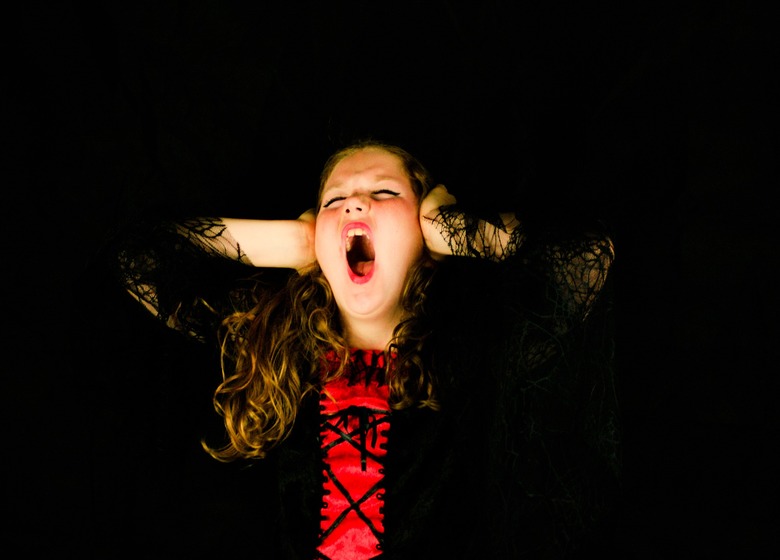In the early years, a child develops rapidly with rapid physical and mental changes. One of the changes your child is going through is sleeping alone, in the nursery and away from the parents now with a better understanding of the world around him. A child’s development years are marked by different and distinct experiences; one of them is night terrors in children.
What are night terrors?
Night terrors are sleep disturbances in which a child can suddenly sit upright in bed, crying, screaming, moaning, mumbling, and thrashing with wide-open eyes, but without really being awake. Because they are trapped between the sleeping and being awake in a kind of twilight zone. They are unaware of your presence and is unable to react to anything you say or do. The episode can last from two to 40 minutes anywhere, and when it’s over your child goes back to sleep suddenly without the incident’s memory.
Causes of night terrors in children
There is no definitive way to prevent night terrors, as nobody knows exactly what causes them. Irregular or inadequate patterns of sleep or any form of sleep deprivation may result in night terrors. These can be induced by day pressure or prolonged tiredness. There is even some evidence that families are having night terrors. What is understood is that night terror on its own does not mean that a child has a psychological problem or is even disturbed by something.
Solving any other issues with your child’s sleep (such as getting up in the middle of the night) and ensuring they have a consistent bedtime with a soothing routine and having enough hours of sleep will help ward off night terrors. In some cases, sleep apnoea may cause night terrors, a severe but reversible condition in which swollen tonsils and adenoids (normal tissue in the throat) are blocked.
Symptoms of night terrors in children
You can note the following symptoms of your child’s condition in the case of night terrors:
- The child may seem frightened or panic-stricken
- The child will sob, cry and scream.
- He may babble and speak incoherently
- If you try to comfort him, he may not recognize you
- The baby may experience intense fear or anxiety from an unknown source
- Can’t remember what happened the next day
- Because of fear, the child might wet the bed
Treatment for night terrors in children
It is usually sufficient to attempt to console the child suffering night terrors to soothe and relieve the disorder. If a child does not respond while sleeping, parents should not attempt to wake them up and allow the problem to subside instead.
If night terrors are caused by any underlying conditions or head injuries, parents must contact a doctor to provide the baby with the appropriate therapy and medication. Treatment for night terrors in children requires a licensed professional consultation and guidance.
How are night terrors different from nightmares?
Unlike a night terror, a nightmare leaves your child fully awake–they will recall their dreams and sometimes talk about it, and by your presence, they can search out and feel comforted. Kids also have hallucinations during dream sleep (REM), usually, between 2 am and 6 am in the early morning hours. They usually have night terrors, on the other hand, during deep non-dream (non-REM) sleep in the first few hours of the night.
The best way to tell the difference between a night terror and a nightmare is to ask yourself the next morning who is more upset about it. If your child is more agitated, they have a nightmare. If you’re the one that’s frightening, they may have had a night terror. Rest assured, in the adult who watched it, the “pain” of a night terror lingers much longer than in the infant who experienced it.
Prevention Of Night Terror
The child and the parents may be taxed by night terrors. There is no remedy for night terrors, but to avoid and reduce the condition certain precautions may be taken.
- Make sure your child’s day is stress-free.
- Develop an easy, soothing bedtime routine that involves talking to the child and reading stories about bedtime.
- Make sure your child gets plenty of sleep.
- Ensure the baby is sleeping on time and is not too often staying up late.
- Keep the child away from challenges and circumstances that have a negative impact.
Tips to deal with night terrors in children
Night terrors are not uncommon in children. Night terrors in children can be difficult to manage as they are not handled. A few tips for coping with this condition are listed below.
- Observe the time after your child’s falling asleep, experiencing night terrors.
- Wake up your child 10-15 minutes before the expected night terror, and don’t let them sleep for 5-10 minutes, and keep going for a week.
- Ensure that in such times there is no item in the vicinity that can harm the baby.
- Try not to wake up your child. Enable the situation to die on its own.
- Do not attempt to physically console the child as this may cause them to lose control.
- Keep the ground clear and lock all of your room’s doors and windows and during this process do not leave the child unattended.
Night terror in children must be managed by maturity, patience, and compassion. Parents should not have a feeling of panic and deal calmly with issues. Changing the rhythm of your child’s life will help lower the rate.
Also Read: Know All About Night Sweats In Children













